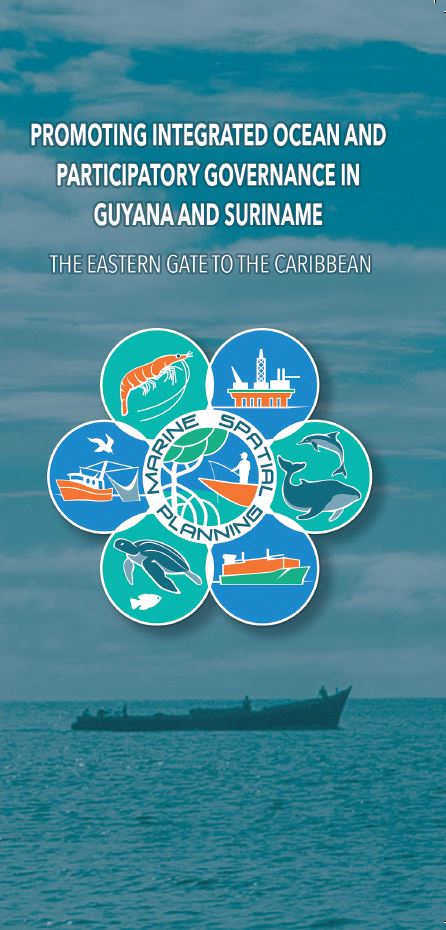“Promoting Integrated and Participatory Ocean Governance in Guyana and Suriname: the Eastern Gate to the Caribbean” commenced in early 2017 and was officially launched in July 2017. This four-year project is funded by the EU and covers the coastal and marine areas of Suriname and Guyana. The project is implemented through a partnership between WWF Guianas, Green Heritage Fund Suriname (GHFS), Guyana’s Protected Areas Commission (PAC) and the Nature Conservation Division (NCD) of the Suriname Forest Service (‘s Lands Bosbeheer). The project aims to significantly enhance the governance and protection of marine and coastal resources of Guyana and Suriname through collaborative processes with all ocean stakeholders, improved knowledge of the coastal and marine environment, enhanced capacity of key stakeholders and informed marine spatial management. It will contribute to substantial progress towards achieving Aichi targets 4, 6, 10, 11 and 14 under the Convention of Biological Diversity (CBD).
This project will use a participatory approach to develop comprehensive and visually appealing spatial data that will fill critical information gaps, and facilitate informed decision-making regarding marine management and protection. This participatory approach to marine decision-making will increase the knowledge of the marine environment and related human uses of the marine environment amongst all participating stakeholders by allowing information to be available to everyone. An Equivalence-Gap Analysis for indigenous peoples (IP) and gender will ensure equity and participation of these marginalized groups, and that their needs are explicitly addressed in the decision-making process of this project. The participatory approach in its entirety builds stakeholder capacity and highlights the important role stakeholders can and should play in marine governance. Increased marine protection and strengthened governance through participatory spatial planning, targeted capacity building, and compelling data, will demonstrate that MSP can produce “win-win” outcomes that conserve biodiversity and enhance food security, protect livelihoods and support socio-economic development compatible with ocean health.
Brochure: Promoting integrated ocean and participatory governance in Guyana and Suriname.






